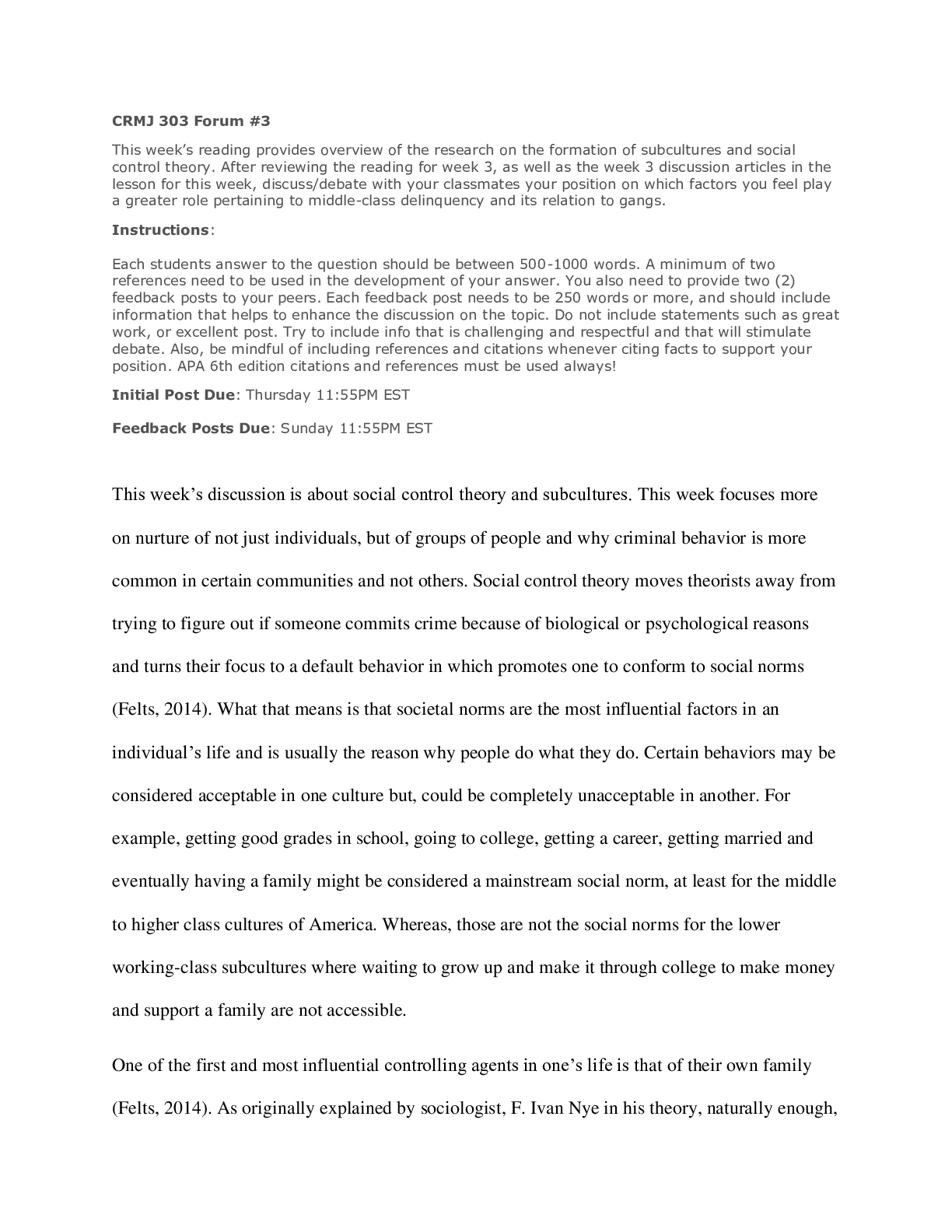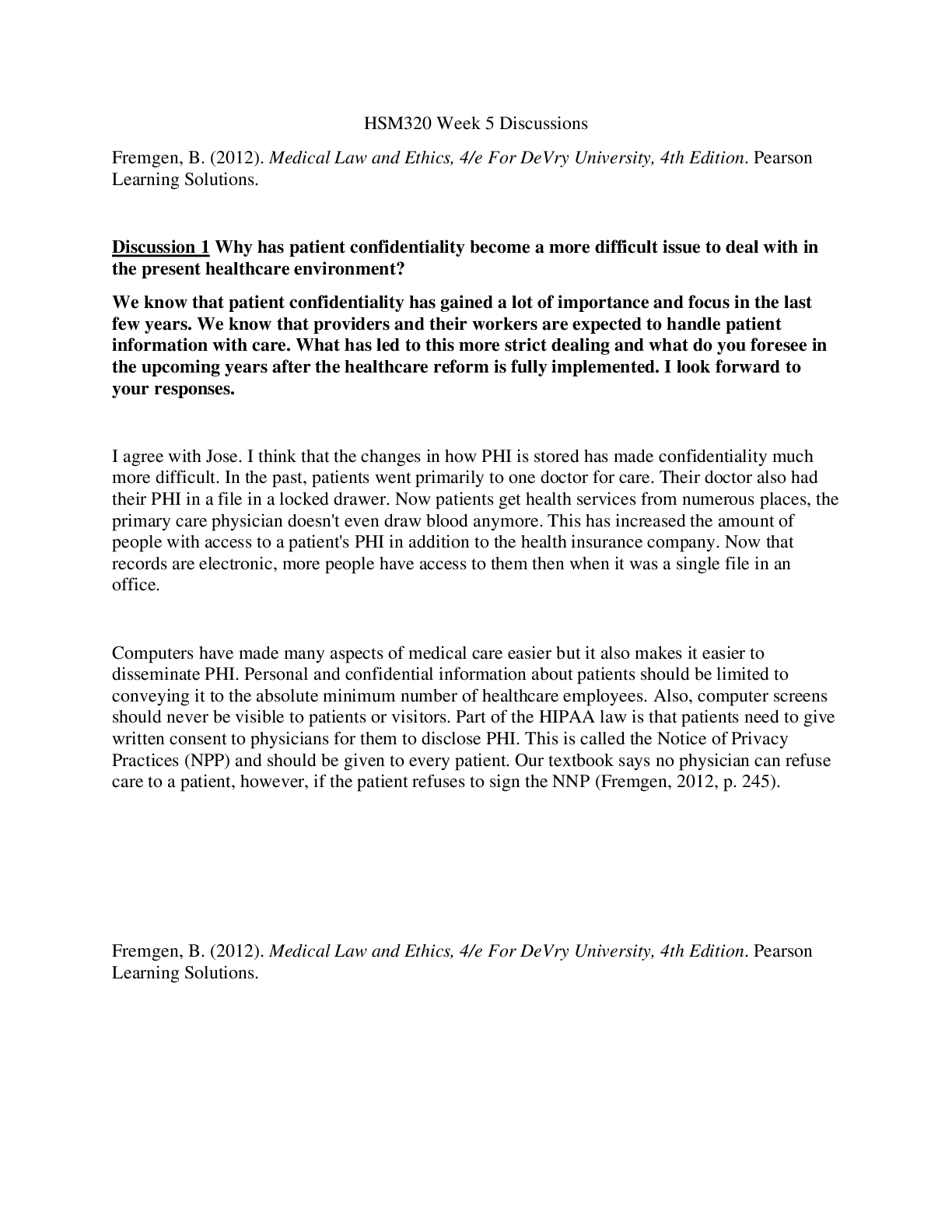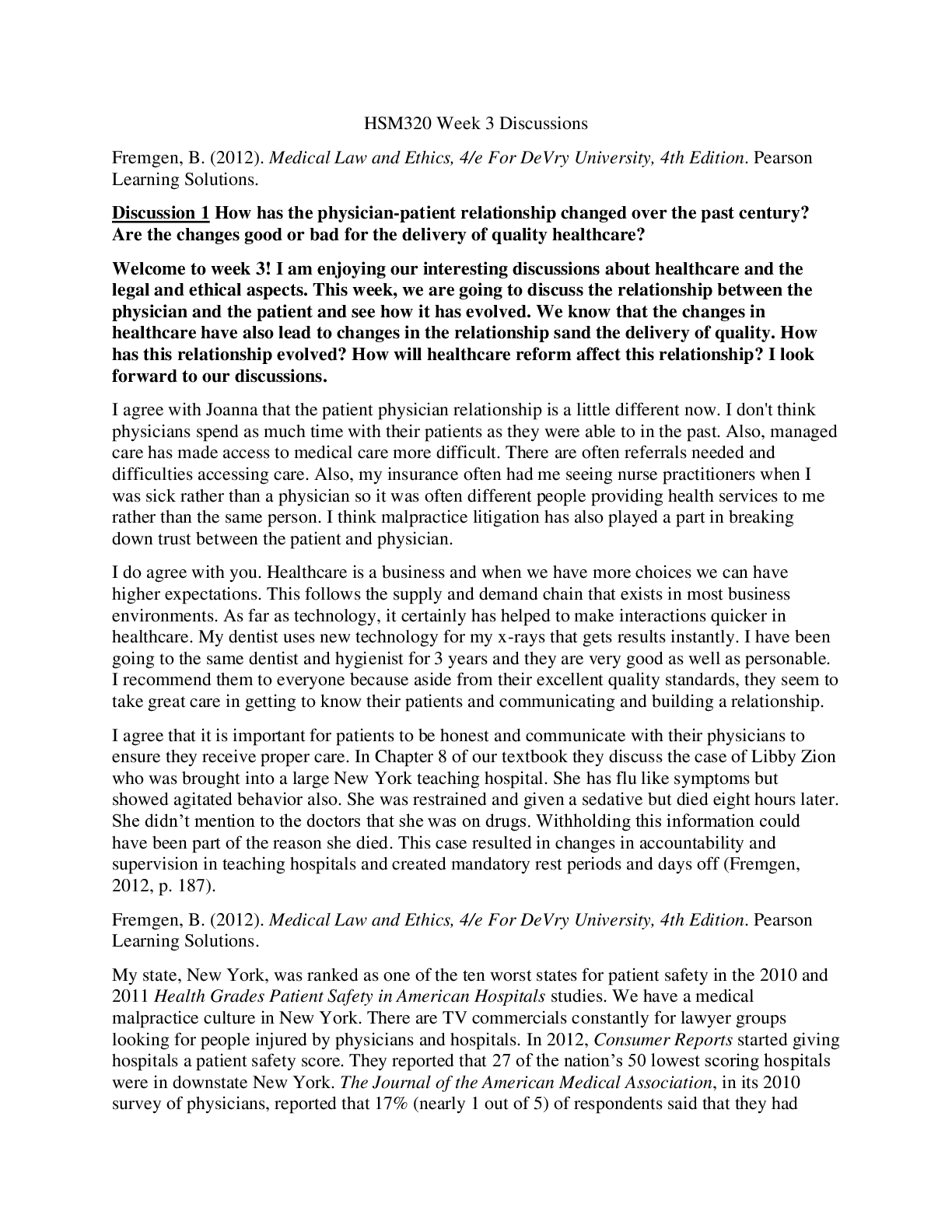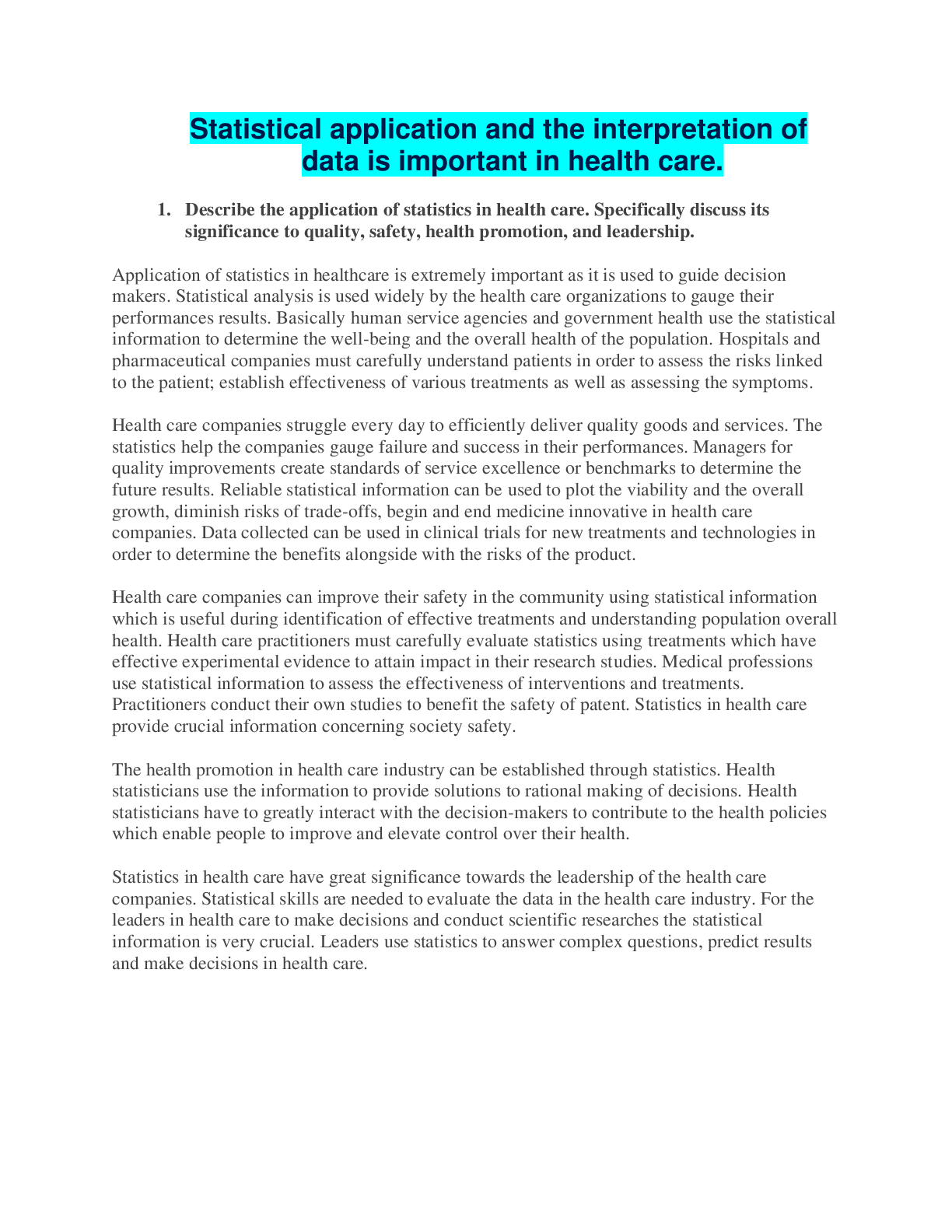Health Care > DISCUSSION POST > HSM320 Week 2 Discussions / HSM 320 Week 2 Discussions 1 and 2, answered perfectly & Correctly. (All)
HSM320 Week 2 Discussions / HSM 320 Week 2 Discussions 1 and 2, answered perfectly & Correctly.
Document Content and Description Below
HSM320 Week 2 Discussions Fremgen, B. (2012). Medical Law and Ethics, 4/e For DeVry University, 4th Edition. Pearson Learning Solutions. John F. and the HM John, a 34-year-old father of two childr... en, is a member of an HMO in Texas. John has made several trips to his area HMO to seek medical attention because he found blood in his bowel movements. He had been taking large amounts of aspirin for persistent headaches but did not realize that this could cause internal bleeding. John was always seen by a physician’s assistant, Robert M., at the HMO, but never by a physician. Robert didn’t ask John about taking any nonprescribed medications. John didn’t realize that he should mention the over-the-counter medication (aspirin) consumption. Robert tells John that he is unable to prescribe any tests for him, but tells him to return if he is not any better. Two days later, John is rushed to the area emergency room with a bowel hemorrhage. Discussion 1 Managed care can be considered any system of delivering health services in which care is delivered by a specified network of doctors, hospitals, and clinics that all agree to comply with the care regimes established by a care-management process. Providers may receive a capitated payment for providing all medically necessary care to enrollees or may be paid on a fee-for-service basis. Managed care often involves a defined delivery system of providers with some form of contractual arrangement with a health plan. What are some of the areas and issues that MCOs try to control? How effective do you feel the MCOs in your own area have been in these efforts? Welcome to week 2. This week, we are going to be talking about MCO's and the areas they try to control. We need to judge how effective they have been in your area? What are the pros and cons of capitated payments? Do they make medical care better? Why do we say that the fee-for-service is becoming something of the past? Discussion 2 What are some ways in which physicians and healthcare organizations can prevent malpractice? We will be talking a lot about malpractice and how we can prevent it. Let's read and discuss the ways physicians and healthcare organizations try to prevent it. What more do you think can and should be done? I have seen doctors groups have committees that review patients cases and treatments as well as diagnosis to ask for different opinions and to come up with a consensus decision. This has helped to ensure more accuracy and safety. Maybe it may have resulted in malpractice reductions. Do you see that helping? What more do you know about malpractice? [Show More]
Last updated: 2 years ago
Preview 1 out of 3 pages
.png)
Buy this document to get the full access instantly
Instant Download Access after purchase
Buy NowInstant download
We Accept:

Reviews( 0 )
$8.00
Can't find what you want? Try our AI powered Search
Document information
Connected school, study & course
About the document
Uploaded On
Jan 28, 2021
Number of pages
3
Written in
Additional information
This document has been written for:
Uploaded
Jan 28, 2021
Downloads
0
Views
76

.png)






